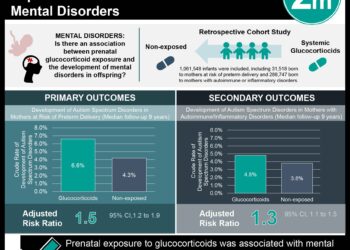Elective induction may increase risk of C-section in obese women
Image: PD
1. Women who underwent elective induction were more likely to have a Cesarean delivery compared to women who were expectantly managed.
2. Infants of women undergoing elective induction were more likely to require NICU admission.
Evidence Rating Level: 2 (Good)
Study Rundown: This study found that among obese women with an unfavorable cervix, elective induction of labor is associated with an increased the rate of Cesarean delivery and NICU admission. While prior work has shown no difference in Cesarean rates between women managed expectantly and those undergoing elective induction, the present work is the first to evaluate Cesarean rates among obese women. This is an important study in light of the growing obesity epidemic in the U.S. and higher rates of pregnancy complications in pregnant obese women.
Limitations include small sample size, retrospective design and variation in labor management between providers. Additionally, since Cesarean can increase risk for NICU admission, it would be valuable to stratify NICU admission data by mode of delivery. Reproduction of these findings in a prospective investigation would solidify the findings presented here.
Click to read the study in AJOG
Relevant Reading: Elective induction compared with expectant management in nulliparous women with an unfavorable cervix
In-Depth [retrospective cohort study]: This study compared pregnancy outcomes among obese women with an unfavorable cervix (Bishop score <5) delivering term delivery (≥39 weeks gestational age) following elective induction (n=60) or expectant management (n=410). Outcomes evaluated included cesarean delivery, operative delivery, 3rd & 4th degree lacerations and NICU admission among other peri- and post-partum complications.
Women who underwent elective induction were more likely to deliver via Cesarean (p=0.022). NICU admission was also more likely for infants of mothers who underwent elective induction (p=0.0001). Spontaneous labor and spontaneous rupture of membranes were the most common indications for delivery among expectantly managed women.
More from this author: New method of cervicovaginal reconstruction piloted, Women electing abortion more likely to be victims of domestic abuse, Adverse pregnancy outcomes associated with hyperandrogenism in PCOS, 5-FU a promising treatment for CIN-2, Repeat third trimester syphilis screening may not be cost effective
©2012-2013 2minutemedicine.com. All rights reserved. No works may be reproduced without expressed written consent from 2minutemedicine.com. Disclaimer: We present factual information directly from peer reviewed medical journals. No post should be construed as medical advice and is not intended as such by the authors, editors, staff or by 2minutemedicine.com. PLEASE SEE A HEALTHCARE PROVIDER IN YOUR AREA IF YOU SEEK MEDICAL ADVICE OF ANY SORT.






